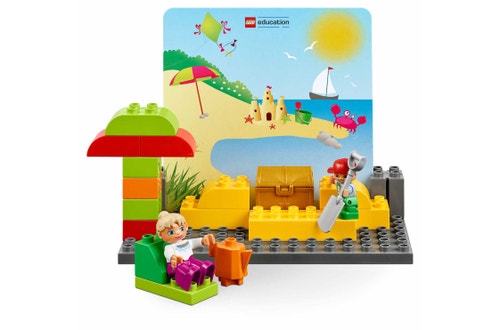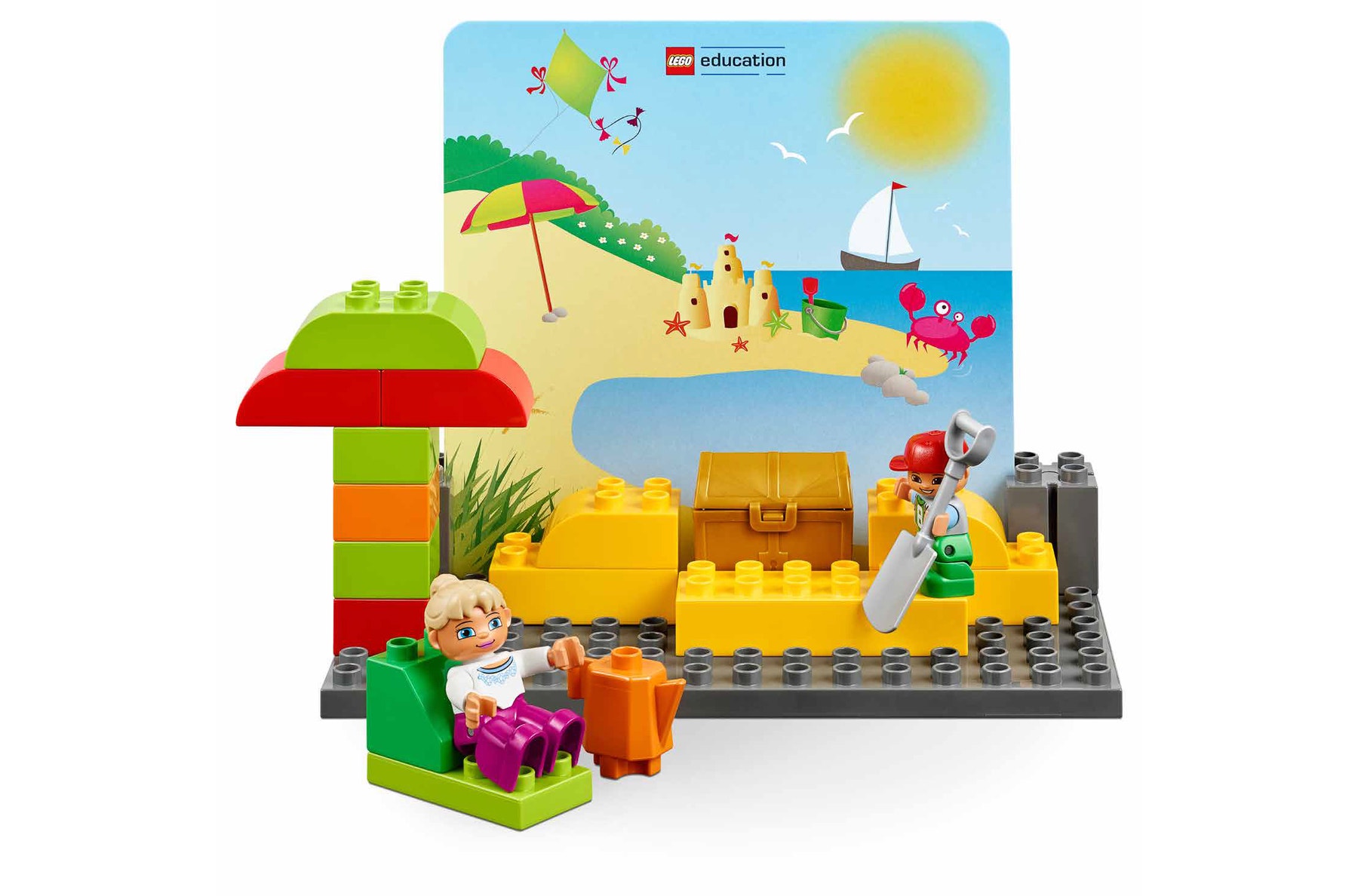Vacation Stories
Learn about and understand story elements like plot and events and be able to recall and tell a story.

Connect
Show the children the image of the beach scene (see below) and tell them that the boy and lady are on a family vacation.

Ask the children to describe what they see. Consider asking questions like:
- Who are the characters in this scene?
- Can you describe the setting of this scene?
- What are the characters doing in this scene?
Prompt a discussion about the main events that take place in a story and how these main events make up the story’s plot. For instance, the boy in this scene seems to be digging. Maybe he is hoping to find buried treasure. That is part of the plot.
Construct
- Ask the children to build a scene showing what happened on a family vacation or school trip. Older children may work in pairs.
- If the children have trouble thinking of a real story, encourage them to make one up. Remind them to pick a background card that is appropriate for their story. For instance, they should consider whether the vacation or school trip took place in a warm place or a cold place and whether they spent time indoors or outdoors. Printing out duplicate images from the appendix will make it possible for multiple children to use the same background card. Print the background images in “actual size” to ensure they fit in the stands.

Contemplate
When the children have finished building, encourage them to take turns sharing their scenes and telling their stories. Consider asking questions like:
- Who are the characters in your story?
- What is the setting of your story?
- What happened on your vacation or school trip?
Continue
Talk to the children about how sometimes events in real-life are not as exciting as we wish they would be. Tell them that we can plan to do things that are fun and exciting.
Encourage the children to rebuild their scenes and tell a story about their plan for a dream vacation. You can also make this a group activity in which you plan the perfect class trip. Consider asking questions like:
- If you could go anywhere on your vacation, where would you go?
- Who would you go with?
- What would you do on your dream vacation?
Did you notice?
Ask guiding questions to elicit students’ thinking and their decisions while ideating.
Observation Checklist
Review the learning objectives and educational standards addressed in this lesson (Teacher Support box).
Share specific student responses and behaviors at different levels of mastery.
Use the following checklist to observe students’ progress:
Students are able to express their thoughts, ideas, and opinions to others.
Students are able to understand the fundamental narrative structure and elements.
دعم المعلم
Children will:
- Understand story elements like plot and main events
- Develop listening skills
- Recall and tell a story
For up to 6 children.
- Children are able to express their thoughts, ideas, and opinions to others.
- Children are able to describe things and events.